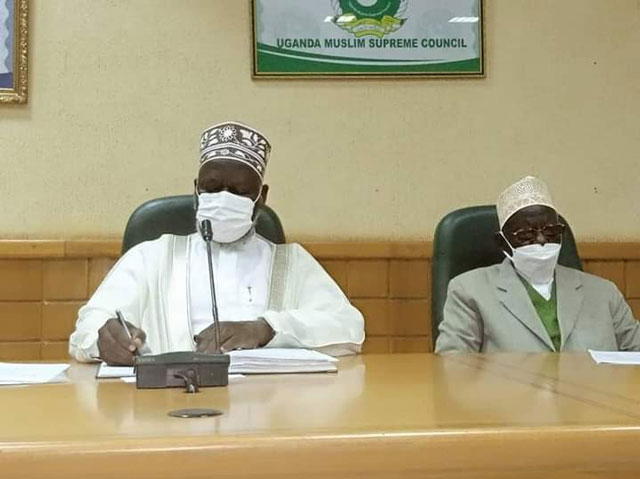
Kampala, Uganda | THE INDEPENDENT | The Uganda Muslim Supreme Council-UMSC Independent Electoral Commission has issued the long-awaited roadmap for the election of new office bearers.
The term of office for the current officials expired this year. Although the previous general assembly had left in place an Electoral Commission, the election process didn’t kick off beacuse the body had to harmonise a few issues that were created by the newly enacted constitution.
Now, in a document to all Muslim faithful in Uganda, Muhammad Omar Waiswa, the chairperson of the UMSC Independent Electoral Commission guided that the election will be organised in six phases running from October 2022 to around June next year (2023).
The first and second phases will only concentrate on pre-election procedures, such as identification of volunteers and returning officers, registration at mosques, production and distribution of electoral guidelines, and displaying voter centre registers among other activities. This is expected to be completed by November 9, 2022.
The nomination and verification of leaders at mosque level across the country will commence on November 17 and end the following day before noon. The leaders to be nominated at this level are mosque chairpersons, deputy chairpersons, secretaries and treasurers as well as three directly selected councilors (including one for women and youth).
According to Waiswa, individuals interested in the role should have completed primary seven, while the chairperson and his deputy should have a minimum of Senior Four. Elections for this level will be held on November 18, after Juma prayers until 5 pm. At this level, there will also be openings for secretary in charge of the zakat, education, women, child protection, and youth affairs.
“All registered Muslims of that Juma mosque who are above 18 years will be eligible to vote. We strongly insist that a person should be registered in one mosque. If the commission is petitioned with evidence that someone registered in more than one place, we shall have to cancel those results,” Waiswa told our reporter.
He added that mosque representatives of special interest groups as well as women and youth will be elected by all members provided that the elected persons fit the description of a youth and woman.
Electoral colleges at various levels, including counties, districts, and regions, will be established one at a time from November 22 to November 26.
At the district level, the college will elect members of the Muslim district council, members of the district executive, district council of sheikhs. At the same level, they will elect district woman and youth representatives to the regional Adhoc council and two members of UMSC general assembly. Currently, UMSC is divided into 78 districts.
Waiswa says that to be elected as chairperson, deputy chairpersons or member of the UMSC general assembly, one must be have a minimum academic qualification of at least senior six or Thanawi. While other leaders at this level should have senior four or its equivalent. The 10 Muslim regional Adhoc councils will also form an electoral college on November 26 purposely to elect the national youth and women councils.
The election phase will be crowned by the swearing in of the newly elected members of the general assembly who will then elect the national chairperson and deputy national persons. During the same sitting, the members will select amongst themselves 10 members who will form the national executive committee.
“After that vigorous activity, phase five and six will focus on handling petitions and orientation of new leaders,” the electoral commission chairperson noted.
In the same development, the chairperson further clarified that the Mufti will not be elected in this cycle as his term of office is still running. “When the current mufti’s tenure expires, we will certainly hold fresh elections this time around following the new requirement as set by the constitution. Anybody interested in that office must be not be below 40 years and not above 75 years at the time of election.”
In 2021, UMSC had budgeted about 6.9 billion Shillings for the election of new Muslim leaders. The said funds according to media reports, were expected to be mobilised from the Muslim community and well-wishers. However, early this year parliament allocated 2.5 billion Shillings to UMSC as government contribution towards the constitutional review and election processes.
*****
URN
 The Independent Uganda: You get the Truth we Pay the Price
The Independent Uganda: You get the Truth we Pay the Price





